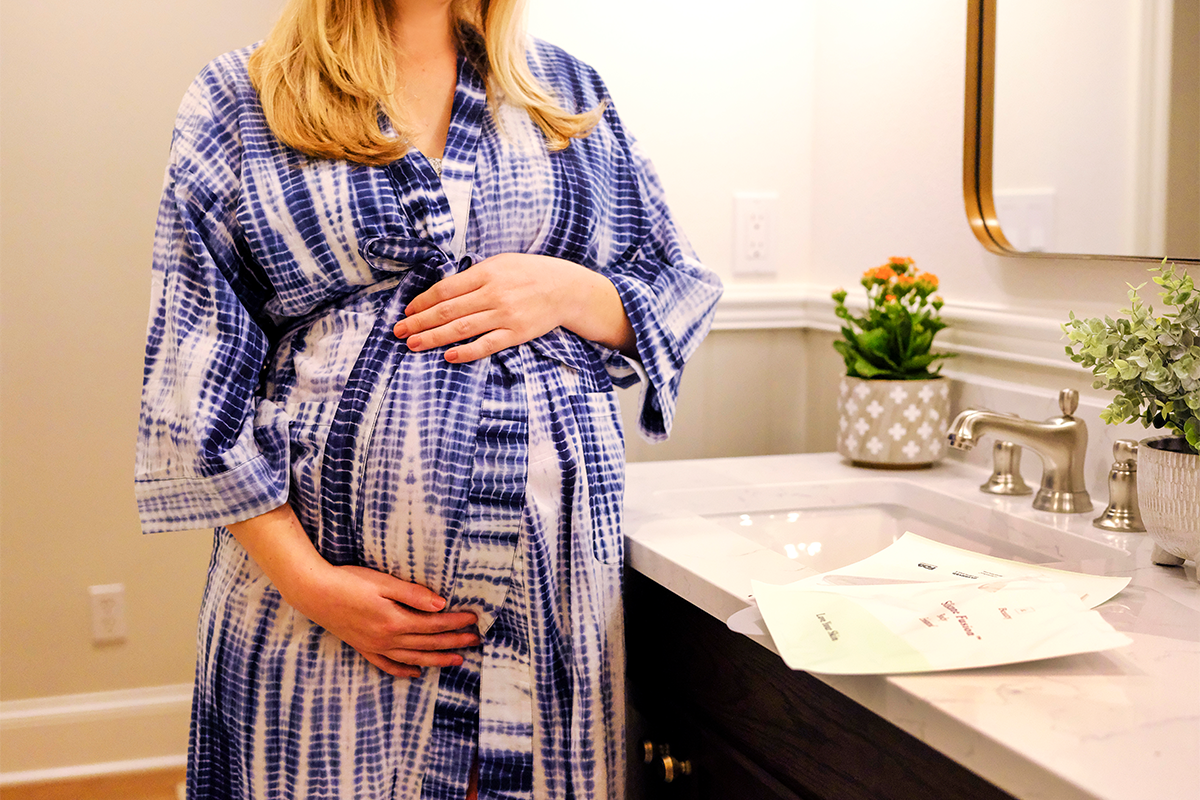Bathing While Pregnant? Things to Keep in Mind

So you’re pregnant, and everything hurts. While some women find sweet relief from period cramps in the comfort of hot bath water, what about when you’re struggling during pregnancy? Is it safe to be immersed in hot water while pregnant? Or will it hurt the baby?
Can I Bathe While Pregnant?
When taking a bath while pregnant, the most important thing to consider is your core body temperature. A pregnant woman’s core body temperature runs slightly higher than their non-pregnant counterparts, hovering around 99°F vs. the average 98.6°F. Bathing while pregnant is perfectly acceptable, as long as you don’t allow your core body temperature to run higher than 101°F.
How Hot is too Hot? What’s The Right Bath Temperature During the 3rd Trimester?
To keep your core body temperature in the acceptable range, you have to make sure you’re not bathing in water that is hotter than 104°F for more than 20 minutes. If you start to feel overheated, dizzy, or nauseous during your bath, exit immediately and take a cool shower to bring your body temperature down. And remember that during this delicate time, hot tubs are definitely off-limits.
Why is it Dangerous to Get too Hot?
Hot tubs are more dangerous than regular baths because the water is constantly recycled and reheated, whereas a bath at home will cool over time.
When your core temperature rises above acceptable levels, it can cause defects and abnormalities in your baby. Hot water can also restrict blood flow to your fetus. Especially common are neural defects, which is when the neural tube (responsible for forming the early brain and spine) does not close properly. Mothers who go in hot tubs more than once during early pregnancy have significantly elevated odds of congenital disabilities in their babies.
Tips for Safe Bathing
Here are some tips for safe bathing while pregnant:
- Epsom salt baths are great for healing aches and pains. Let the salt dissolve, but don’t soak in it for more than 10–15 minutes.
- Buy a thermometer to test the temperature of your bathwater so you don’t accidentally bathe in water that is too hot.
- Try a warm foot bath for relaxing during pregnancy if you don’t want to take a full-body bath.
- Don’t stay in the bath for too long: 15–20 minutes is the ideal amount of time.
- Avoid baths after your water has broken: with the amniotic sac ruptured, bathwater with germs can reach the fetus and lead to infection.
- Avoid using bath bombs, essential oils, and bath oils that could irritate your vagina or skin.
- Make sure you’re entering and exiting the bathtub carefully to avoid slips and falls. A non-slip mat in front of the tub is always a good idea.
To close out your time in the tub, finish it off with a little self-care. Opt for a hydrating and nourishing skincare routine. Look no further than the Dermaclara Complete Face System, stocked with our signature Silicone Fusion patches, Claraprep Cleanser, and Clarasome Moisturizer; your skin will be glowing. After a safe dip in the bath and this skincare regimen, you will feel refreshed.
Conclusion
Pregnancy takes a huge toll on your body. Sometimes you just want to escape it all, but you can’t just remove your belly for the night! Instead, it can be a great relief on your joints to be floating weightlessly in a nice, warm bath. However, you have to make sure that you’re taking the necessary precautions to keep you and your baby safe when taking a bath while pregnant.
Make sure the water temperature is never too hot, that you don’t stay in the bath for too long (even though it might be tempting), and to be careful entering and exiting the bathtub so that you don’t slip and fall and hurt yourself. Also, be sure to steer clear of bath bombs and oils and take a cool shower if you feel your body temperature getting too hot!
Leave a comment